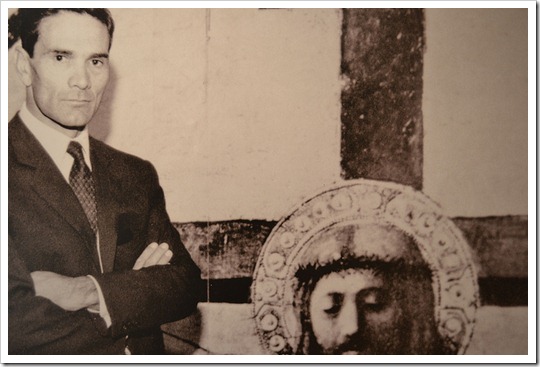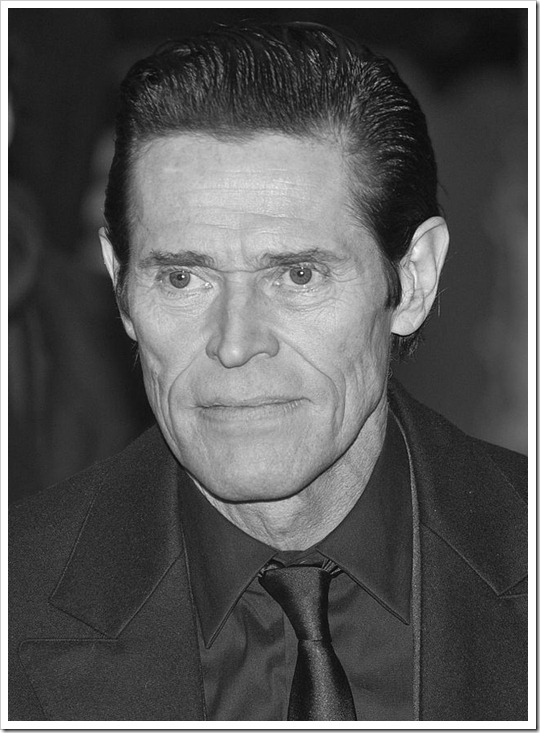Pier Paolo Pasolini Posted by Serena on Sep 10, 2014 in Culture, Italian Language, News
Last week, at the 72nd edition of the Venice Film Festival, the American director Abel Ferrara (of Italian origin) presented his latest film: Pasolini. Interpreted by Willem Dafoe, the film portrays the final hours and tragic death in 1975 of the Italian film director, writer, poet and Marxist intellectual Pier Paolo Pasolini, whom Abel Ferrara considers an inspiration for his own work. I haven’t seen the movie because it won’t be released in Italy until the 24th of September, but if you’re interested you can find out more about it in this article by The Guardian: Abel Ferrara on the death of Pasolini.
 |
| Pasolini davanti al Cristo di Masaccio Photo (CC) |
Pasolini was born in Bologna in 1922, but during his child-hood he spent long periods with his maternal grandparents in the village of Casarsa, in Friuli Venezia Giulia, in the north east of Italy. Here he learnt the local dialect, il friulano. His first book of poems was in fact written in friulano, and was published during the Fascist era by the publisher Landi in 1942, who gave a copy to Gianfranco Contini, professor of philology. Greatly impressed by Pasolini’s poems, Contini wrote a review for the magazine ‘Primato’, but the article was never published due to the fact that the Fascists did not allow the use of what they considered ‘barbarian languages’ or dialects. Furthermore, in some of his poems Pasolini’s homosexuality is evident, something which at the time was considered completely taboo. You can read more about Pasolini’s life in this link
 |
| Willem Dafoe bears a remarkable resemblance to Pasolini. Photo: (CC) by Siebbi |
Here is an example of one of Pasolini’s poems, originally written in friulano, and translated into Italian by Pasolini himself :
Mi contenti
Ta la sera ruda di Sàbida
mi contenti di jodi la int
fór di ciasa ch’a rit ta l’aria.
Encia me cór al è di aria
e tai me vuj a rit la int
e tai me ris a è lus di Sàbida.
Zòvin, i mi contenti dal Sàbida,
puòr, i mi contenti da la int,
vif, i mi contenti da l’aria.
I soj usàt al mal dal Sàbida
and here’s Pasolini’s Italian translation:
Mi accontento
Nella nuda sera del sabato
mi accontento di guardare la gente
che ride fuori di casa nell’aria.
Anche il mio cuore è di aria
e nei miei occhi ride la gente
e nei miei ricci è la luce del sabato.
Giovane, mi accontento del sabato,
povero, mi accontento della gente,
vivo, mi accontento dell’aria.
Sono abituato al male del sabato
finally, my modest English translation:
I’m content
In the naked evening of Saturday
I’m content to watch the people
who laugh in the air outside their houses.
My heart is also made of air
and in my eyes people laugh
and in my curls is Saturday’s light.
Young, I’m content with Saturday,
poor, I’m content with the people,
alive, I’m content with the air.
I’m used to the pain of Saturday.

Build vocabulary, practice pronunciation, and more with Transparent Language Online. Available anytime, anywhere, on any device.




Leave a comment: